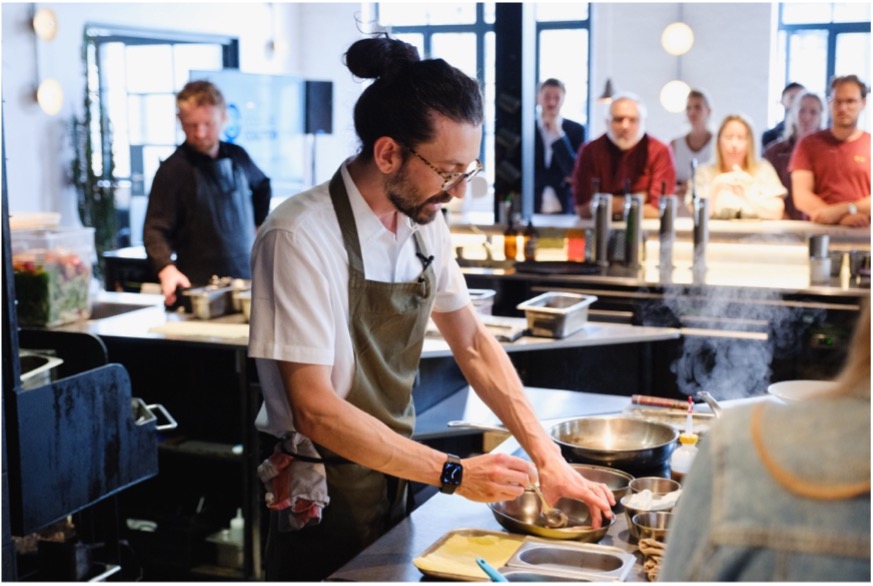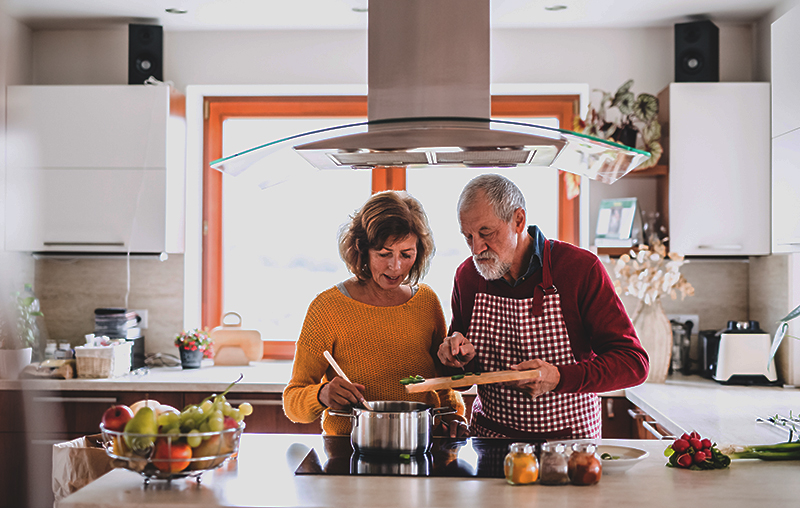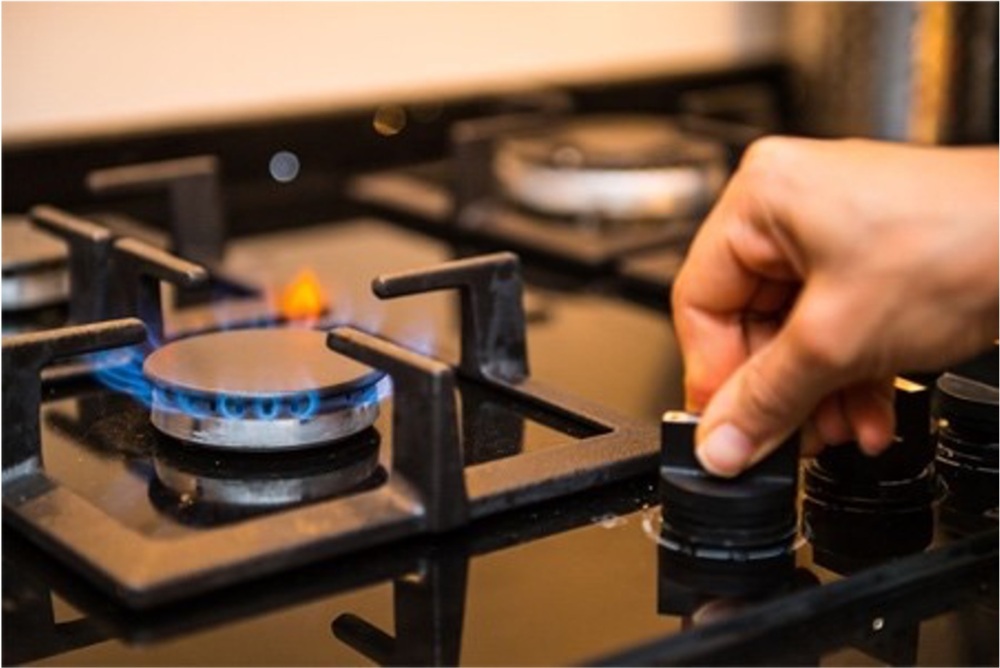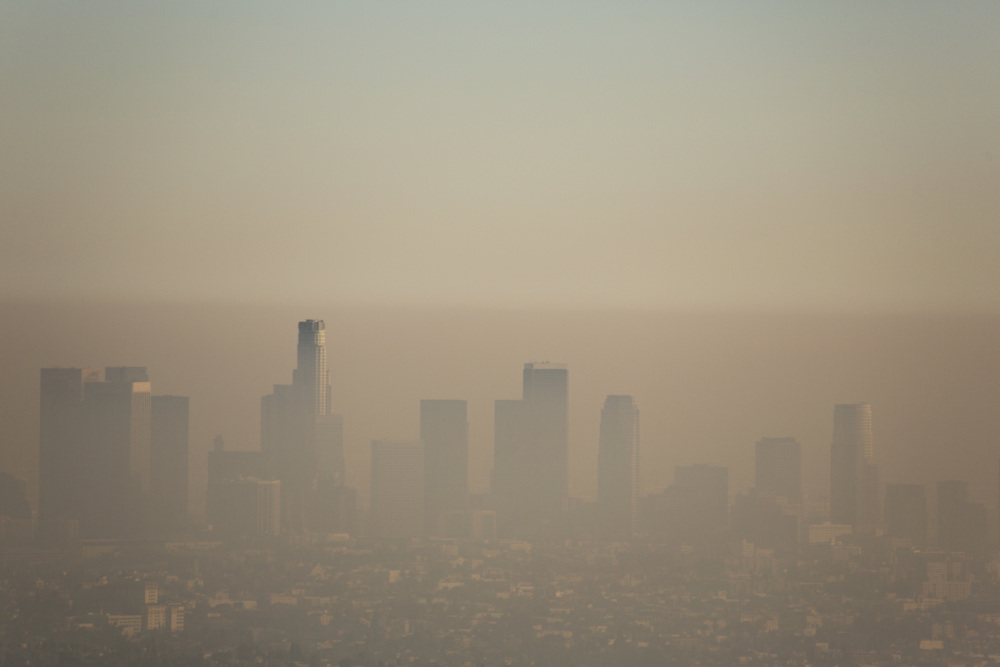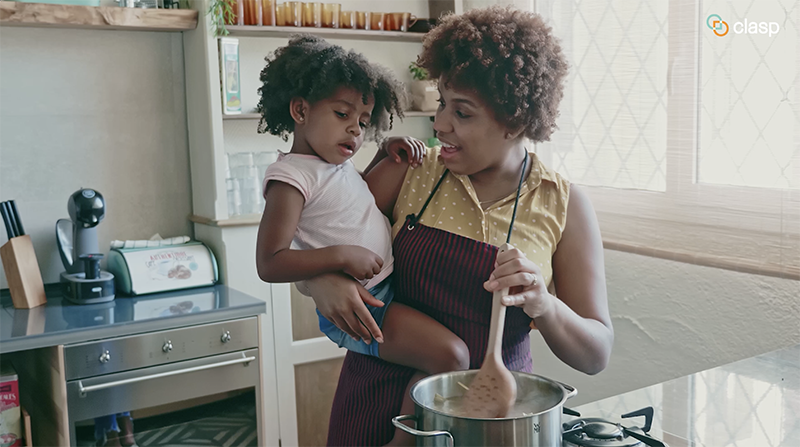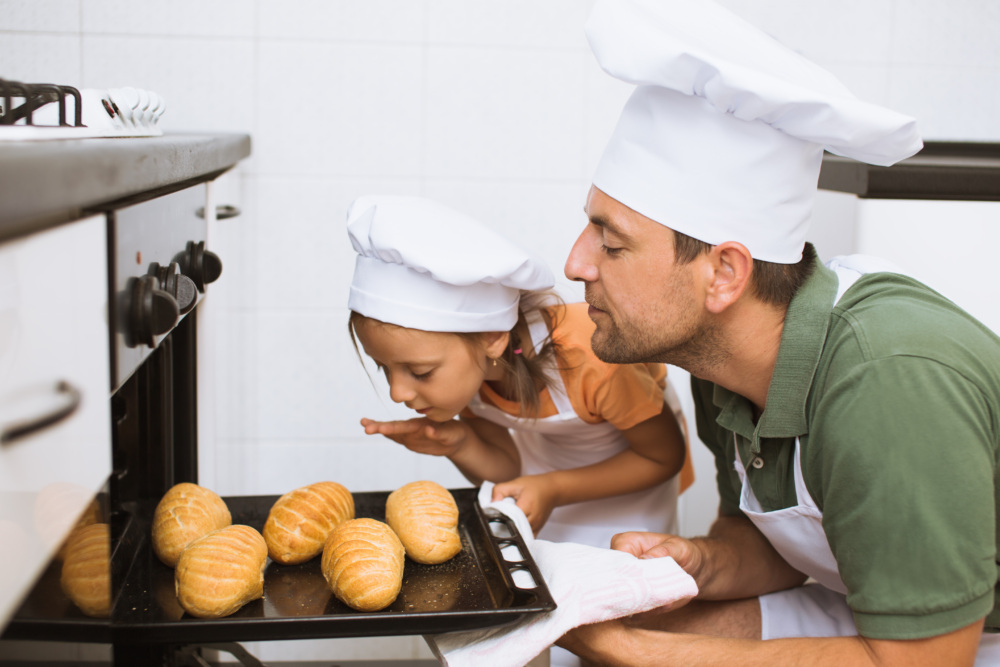UK policies do not protect the public from the impacts of gas cooking
CLASP's new study finds home gas cooking appliances may be exposing millions of people in the UK to levels of indoor air pollution that breach national and international regulations.
This report was released in collaboration with Global Action Plan, a UK-based environmental charity focused on issues where the connection between the health of people and our planet is most tangible.
This press release was originally posted by Global Action Plan.
A new study by CLASP, with technical input by the Netherlands Organisation for Applied Scientific Research (TNO), suggests based on simulations that cooking with gas in a home kitchen without ventilation emits levels of air pollution that exceed World Health Organisation air quality guidelines and outdoor UK air pollution standards. More than half of UK homes cook with gas, equating to over 36 million people in the UK that may be exposed to levels of air pollution that violate UK outdoor regulations. TNO is currently carrying out a field study in the UK to validate the simulation results.
When in use, gas hobs and ovens emit carbon monoxide, carbon dioxide (CO₂), and nitrogen dioxide (NO₂) which can linger indoors for hours after use. Research indicates exposure to high levels of outdoor air pollution can cause strokes, heart disease, lung cancer, and both chronic and acute respiratory diseases, including asthma.
The economic and welfare burden of air pollution is significant. CLASP estimates that indoor air pollution from gas cooking costs the UK around £1.4 billion annually in healthcare costs, including lower life expectancy, illnesses, greater healthcare expenditure, and lower productivity. There is also growing evidence that links combustion-related air pollution with adverse effects on brain development in young children.
While the health risks of air pollution have been widely explored and publicised, the relationship between cooking on gas and indoor air quality are yet to receive the same level of public awareness.
The study determined that this is a significant but solvable public health and environmental problem, and that the UK Government has a policy opportunity to transition to cleaner alternatives but is failing to act.
Gas cooking undermines UK targets to become a climate-neutral economy by 2050. As a fossil fuel, burning gas when cooking emits both CO₂ and unburned methane, two potent greenhouse gases. With around 54% of UK households cooking on gas, cooking alone accounts for roughly 2% of total UK carbon emissions. Even when switched off, gas hobs leak methane. Methane is the main component of fossil gas used for cooking and when leaked, it can warm the Earth more than 80 times as much as the same amount of CO₂ over a 20-year period.
While boilers sold in the UK have set NO₂ emission limits, and incentives are available to upgrade to more efficient and climate-friendly heat pumps, no such policies exist for cooking appliances.
CLASP and partners are calling for the UK Government to:
- Adopt laws to protect consumers by setting limits on pollution emissions from gas cooking appliances and ensure that hobs and ovens are efficient.
- Provide a new Energy Label to enable people to directly compare the efficiency and emissions of gas and electric cooking appliances.
- Accelerate the transition to cleaner electric cooking by coupling incentives for heating and home upgrades with electric cooking appliances.
The report also provides guidance to individuals on ways to mitigate the impact of gas cooking.
Recommendations include:
- Make the switch from gas to electric cooking when and where possible, including using small plug-in appliances if they cannot upgrade to electric hobs and ovens.
- Properly ventilate kitchens when cooking, preferably with a functioning range hood that is vented to the outside, by mechanical ventilation, or by opening windows while cooking.
- Install a low-concentration carbon monoxide detector in the kitchen and get an annual gas safety check on gas hobs and ovens.
Professor Frank Kelly, Imperial College London, said: “Cooking on gas adds to the health burden of indoor air pollution, emitting harmful pollutants such as NO₂ that can impact virtually the entire human body. Removing one of the key pollutant sources — gas cookers — from our homes will help create a healthier lived environment and mitigate potential risks to public health.”
Professor Prashant Kumar, founding Director of the University of Surrey’s Global Centre for Clean Air Research (GCARE), said: “Air pollution impacts everyone but is most harmful for vulnerable populations that include babies and children whose immune systems are still developing. The research from CLASP and TNO is consistent with our findings that gas cooking negatively impacts in-kitchen air quality. Electric cooking is the best solution available in the UK to reduce exposure to harmful pollutants released every time we turn on the gas stove.”
Christine Egan, CLASP CEO, said: “Few people are aware of the harmful risks posed by gas cooking appliances. Electric appliances significantly reduce exposure risks, but there is no mechanism for buyers to compare the efficiency, performance or safety of gas versus electric hobs or ovens. There is an opportunity to transition to cleaner electrical cooking options that are already affordable and readily available across the UK.”
Larissa Lockwood, Director of Clean Air, Global Action Plan, said: “It is a myth that gas is ‘natural’ or ‘clean.’ Shamefully, the gas industry has invested heavily in positioning gas as a safe and preferred cooking option. In part because of these efforts, people are genuinely unaware of the health and environmental risks posed by gas cooking, which are well documented through decades of research.
However, in a cost-of-living crisis it is not realistic to put the onus on the individual to foot the bill of swapping to an electric oven – we need government intervention. Helping UK homes to transition to cleaner, electric alternatives would be an open goal for the Government to hit a triple-win on air pollution, health and climate goals.”
Contacts
CLASP Europe Director Nicole Kearney (EN) +44 75 4486 5924
CLASP Communications Manager Hannah Blair (EN) +1 225 239 9014

